6 Communication Strategies to deal with complex challenges
A few years back the NY Times printed an article titled: "Google’s Quest to Build a Better Boss." The article reports on a study Google undertook to find out what makes a boss most successful.
“In the Google context, we’d always believed that to be a manager, particularly on the engineering side, you need to be as deep or deeper a technical expert than the people who work for you. It turns out that that’s absolutely the least important thing. It’s important, but pales in comparison. Much more important is just making that connection and being accessible.”
They found that what employees valued most were even-keeled bosses who made time for one-on-one meetings, who helped people puzzle through problems by asking questions, not dictating answers, and who took an interest in employees’ lives and careers. In other words, bosses that took time for making connections through communication.
It should not surprise us that a focus on and return to the "basics" of effective communication and human relationship is the secret, not only of being a successful leader, but also to dealing with complexity.
People talk about business challenges becoming so complex that nobody can understand them or do anything about them.
What is interesting is that I hear the same from the couples I work with. Nowadays families with small children have to juggle not only the challenges of demanding work, but school, extra-curricular activities, the demands of tasks at home, family, friends. . . the list goes on and on. Life gets so complex that relationships suffer and families brake up.
What families, organizations and businesses need most is to know how to create effective communication cultures that can collaboratively deal with complexity.
Let’s review high-impact communication strategies that will create robust and resilient people and organizations. Organizations and people that can not only adapt to the new complex challenges and changing conditions of these uncertain times but which can actually thrive.
Listen
Listening may be the single most powerful skill of effective communication for it is an act of respect and of valuing others. When you listen and seek to understand first, you also create more receptivity for others to hear you.
Listening helps create an environment of safety, where people are willing to take risks and new learning can occur. Complex challenges can only be resolved by those who feel they can share their thoughts and are continually learning.
Listening includes eye contact, listening without thinking of one’s rebuttals or preparing for what to say next, listening for emotional content as well as information, and asking questions to clarify meaning.
Test judgments and assumptions
We tend to make judgments, both positive and negative. Whether we are judging ourselves or others, judgment shuts down creativity, imagination and learning. Judgments will limit your ability to listen and learn something new.
Assumptions act as lenses or filters for your perceptions. Because each of us has a unique life experience, we each carry a unique set of assumptions. We also have shared assumptions which tend to glue us together.
Different judgements and assumptions in and of themselves don’t create problems so much as the need to be right about them! Effective communication demands that you test your judgements and assumptions as well as clarify those of others. Only then can you know that you are speaking a shared language of meaning.
Strive first to be aware of your judgments and assumptions. In so doing, you can become clear that you are reacting based on your assumptions. You can then more objectively bring them into the conversation as an interpretation, not as “the truth.”
Inquiry
Inquiry is about asking questions and holding an attitude of curiosity. Questions create new levels of understanding and learning. Inquiry can deepen your ability to think systemically because questions often reveal the relationships among the parts that make up the whole. Complex issues need systemic thinking.
You need to View your family or your organization as a system of human interactions rather than as a machine or military organization with rigid rules. Be flexible. Be curious. Ask questions.
Personal Advocacy
Effective communication require that you share your thoughts and feelings. Embrace uncertainties and differences of opinion. Don’t shy away from tension and disagreement. Nevertheless, share in a way that helps open, not close, communication.
Balance
Balance data and intuition. Data alone shouldn’t dictate what you do. Combine measurement, standards, and controls (the rational) with trial and error, risk taking, and autonomy (experiments and intuition). Diversity of people and thoughts can help bring this balance.
Positive action
Let your direction arise from what works. Don’t try to be “sure” before you proceed with anything. There is no single path to solve complex challenges. But in the multitude of collaborative action, things can get done.
Remember. . .
Effective communication is the main secret for dealing with complex challenges. It will also decrease individual and organizational conflict, speeding up innovation, and increasing productivity and profit.
How can you encourage more effective communication in your organization? How can you have better communication at home? Share your comments with us.
I have a free gift for you! It’s an infographic with Communication Guidelines, the Do’s and Don’ts of communication. You can ask for it by filling the form below.
Photo: AlphaTangoBravo / Adam Baker

